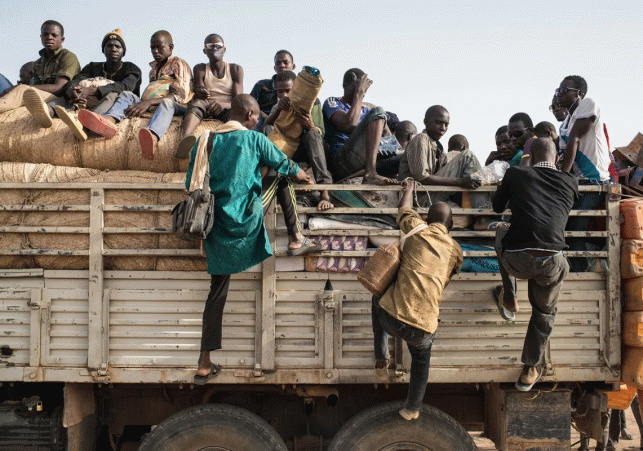
Tunisia and Libya to Provide Shelter
Joint Efforts of Tunisia and Libya to Shelter and Support Stranded Migrants at Border
- By Anubhuti --
- Friday, 11 Aug, 2023
Tunisia and Libya Join Forces to Address Migrant Crisis
Tunisia and Libya have embarked on a collaborative endeavor to address the pressing humanitarian crisis involving hundreds of stranded migrants along their shared border. The two nations have agreed to collectively provide shelter and assistance to the migrants, who have found themselves in dire circumstances, many for over a month.
Shared Responsibility for Stranded Migrants
In a joint meeting held in Tunis, authorities from Tunisia and Libya announced their commitment to share the responsibility of providing aid and refuge to the stranded migrants. These individuals, primarily hailing from sub-Saharan African countries, were brought to the desert region of Ras Jedir by Tunisian authorities. The move aims to alleviate the suffering of the migrants and find a comprehensive solution to their predicament.
Tunisia Takes Initiative
Tunisia has taken the initiative to accommodate a group of these stranded migrants, signaling its dedication to upholding humanitarian values. A total of 126 individuals, consisting of 76 men, 42 women, and eight children, have been relocated to reception centers in the cities of Tatouine and Medenine. Tunisia's efforts also encompass providing vital healthcare and psychological support, with assistance from the Tunisian Red Crescent.
Also Read:
Libya Joins Hands
In line with the collaborative spirit, Libya has committed to overseeing the well-being of the remaining 150 migrants. This bilateral agreement reflects both nations' recognition of the urgency to address the situation and their commitment to mitigating the challenges faced by these vulnerable individuals.
Background and Challenges
The crisis has arisen amidst a backdrop of escalating racial tensions, sparked by an unfortunate incident in Tunisia's city of Sfax. The fatal altercation involving a Tunisian man and migrants triggered heightened xenophobic sentiments. Subsequently, up to 1,200 black Africans were either expelled or forcibly transferred by Tunisian security forces to desert border regions shared with Libya and Algeria, according to Human Rights Watch.
President Kais Saied's incendiary speech in March, where he made allegations about irregular migrants, exacerbated an already delicate situation. The speech invoked concerns about crime and demographic shifts in the predominantly Arab nation, prompting increased attempts at border crossings. Tragically, reports from humanitarian officials indicate that at least 25 migrant deaths have occurred in the Tunisian-Libyan border area since the past month.
Xenophobia and the Call for Action
The aftermath of President Saied's remarks has seen a surge in xenophobic attacks targeting black African migrants and students across Tunisia. Many migrants have faced the loss of employment and housing, further exacerbating their plight. The collaborative approach between Tunisia and Libya marks a crucial step toward addressing this multifaceted crisis, aiming to provide safety, stability, and a brighter future for those caught in its grip.
Gateways of Hope and Challenges
Both Tunisia and Libya serve as significant gateways for migrants and asylum seekers, primarily hailing from various parts of Africa. These individuals embark on perilous journeys in often precarious vessels, seeking opportunities for a better life. The joint efforts of these two nations reflect not only a commitment to alleviating immediate suffering but also a pledge to uphold the principles of compassion and humanity in the face of complex challenges.
Also Read:





